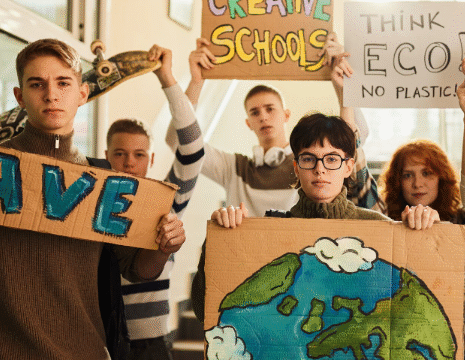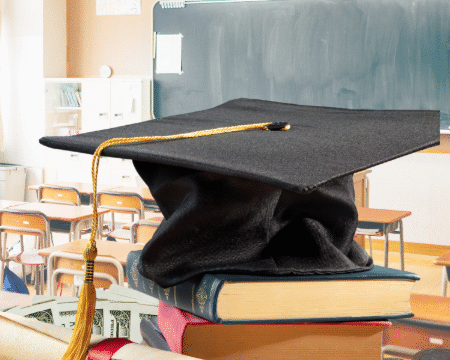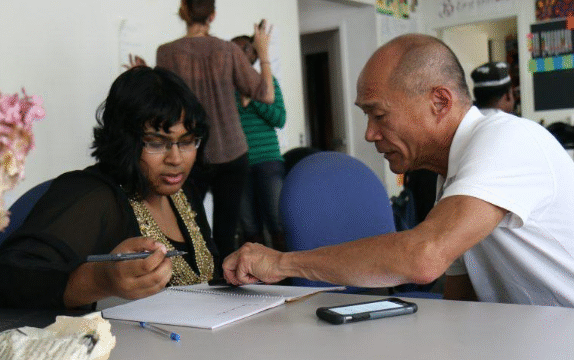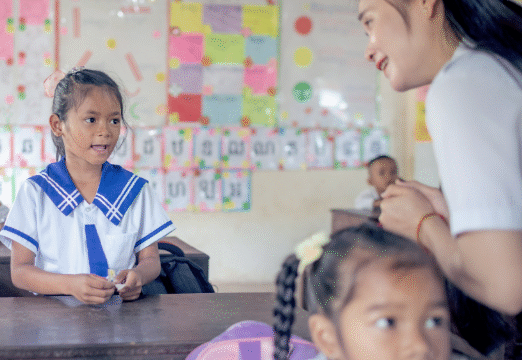Education has long been recognized as one of the most
powerful tools for creating opportunity, reducing inequality,
and building stronger societies. For marginalized communities,
where social and economic challenges often limit access to resources, education can serve as a lifeline that breaks cycles of poverty and opens pathways to dignity and growth. Empowering these communities through learning is not only about providing textbooks or classrooms; it is about fostering confidence, cultivating skills, and ensuring every individual has the chance to participate fully in society.
At its core, education equips people with knowledge and skills that can improve their quality of life. For marginalized groups, whether they face barriers due to geography, income, gender, disability, or cultural identity, having access to quality education helps create a level playing field. A child who learns to read, write, and think critically gains more than academic abilities—they gain the tools to navigate opportunities, advocate for themselves, and contribute meaningfully to their community. When education is inclusive and responsive to the needs of marginalized learners, it becomes a transformative force that lifts not only individuals but entire families and neighborhoods.
Empowerment through education often begins with access. Many marginalized communities struggle with limited schools, long travel distances, or high costs that make it difficult for children to attend. When local or national efforts ensure schools are built closer to communities, offer affordable learning opportunities, or provide scholarships, these barriers start to break down. Beyond physical access, education must also be culturally relevant and inclusive. For example, teaching in local languages or incorporating community traditions into the curriculum allows learners to connect personally with what they study. When students see their identity reflected and respected in the classroom, they are more likely to thrive.
Another crucial element of empowerment is skill development. While traditional education emphasizes literacy and numeracy, marginalized learners often benefit from practical skills that relate to their immediate environments. Vocational training, digital literacy, and entrepreneurial education can empower individuals to earn a livelihood and uplift their families. A rural community that learns sustainable farming techniques can increase food security, while urban youth who gain technology skills can connect with job markets beyond their immediate surroundings. Education that blends academic knowledge with practical applications ensures that marginalized communities are not left behind in a rapidly changing world.
Empowering marginalized communities through education also requires attention to equity. This means recognizing that different learners face different obstacles and tailoring support accordingly. Girls in many parts of the world, for instance, may face cultural barriers to attending school. Persons with disabilities may struggle in environments that are not designed to accommodate their needs. Minority groups may face language barriers or discrimination. An inclusive education system acknowledges these realities and creates strategies to support every learner. This could mean offering safe transportation for girls, providing accessible learning materials for children with disabilities, or training teachers in diversity and inclusion practices.
Communities themselves play a powerful role in this empowerment process. Education works best when families and local leaders are actively engaged. Parents who are encouraged to value education will more likely send their children to school consistently. Community members who participate in building schools, supporting teachers, or mentoring students create a sense of ownership and shared purpose. When a community views education as a collective investment, its benefits ripple across generations. Empowering marginalized communities is not something that can be done from the outside alone; it must involve collaboration, respect, and trust within the community itself.
One of the most inspiring aspects of education is its ability to create hope. For individuals who may feel excluded from mainstream society, gaining knowledge and skills fosters a renewed sense of possibility. Students who succeed academically often become role models for others, showing that progress is achievable. In many communities, the first generation to access education becomes the foundation for broader change. Parents who were once unable to attend school themselves often make sacrifices to ensure their children do not face the same limitations. Over time, this cycle of hope leads to long-term development and resilience.
Governments and organizations also play a vital role in empowering marginalized communities through education. Public policies that promote universal access, equal funding, and inclusive practices can ensure that no one is left behind. Nonprofit organizations and international partnerships often provide resources, training, and advocacy to fill gaps where public systems struggle. Technology has also emerged as a powerful tool, bringing educational resources to remote communities through online platforms and mobile learning. By combining policy, community action, and innovation, education becomes a bridge that connects marginalized communities with broader opportunities.
The economic benefits of educating marginalized communities cannot be overlooked. Individuals who complete their education are more likely to secure better-paying jobs, contribute to local economies, and support sustainable growth. Education reduces dependence on aid and increases the capacity of communities to thrive independently. Furthermore, societies that invest in inclusive education often experience greater social harmony, as individuals from different backgrounds gain the opportunity to interact, collaborate, and understand one another. In this way, education not only empowers marginalized groups but strengthens entire nations.
It is also important to acknowledge that empowerment through education is a long-term journey. Challenges such as poverty, systemic inequality, and discrimination cannot be solved overnight. Yet, every step toward accessible, inclusive, and meaningful learning makes a difference. A single school built in a remote area can transform a generation. A teacher trained to understand cultural diversity can open doors for dozens of students who might otherwise feel excluded. A scholarship provided to one student can inspire an entire community to believe in the power of education. These small but significant actions accumulate into lasting change.
Ultimately, education is more than the transfer of knowledge. It is an act of empowerment, dignity, and justice. For marginalized communities, it represents an invitation to participate fully in the life of society, to shape their own futures, and to break free from cycles that have held them back for too long. When education is inclusive, equitable, and rooted in respect, it unlocks potential that benefits not just individuals but entire nations.
Empowering marginalized communities through education is therefore not simply a goal to strive for; it is a responsibility shared by all. Governments, educators, organizations, families, and individuals each have a role to play in making education a force that uplifts rather than excludes. By continuing to invest in learning that reaches the most vulnerable, societies can create a world where every person has the opportunity to learn, grow, and succeed. Education is not only a foundation for personal achievement—it is the bridge to a more just, compassionate, and prosperous world for all.






